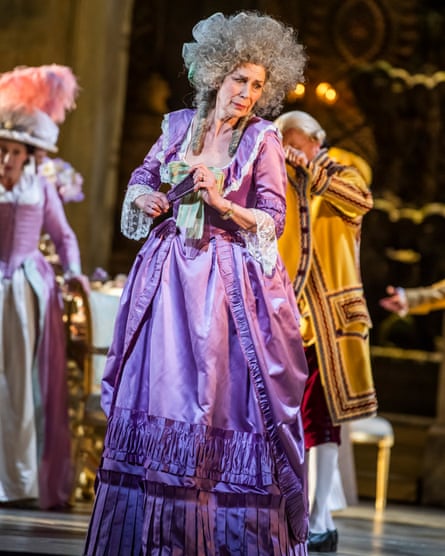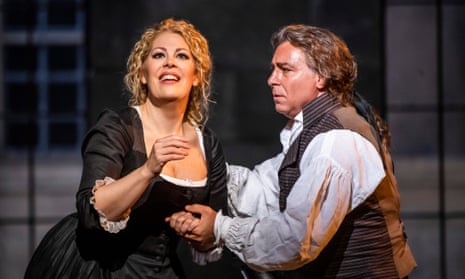Andrea Chénier is saturated in the French revolution. The story of the liberal poet who sympathises with the oppressed but who is executed in the Terror is loosely based on a real one, and Giordano’s opera is full of historically specific characters and political references. Robespierre himself even gets a walk-on part and there are musical allusions to at least three anthems of revolutionary France.
Yet artistically, Andrea Chénier is no revolutionary work. The inevitable departure to the guillotine at the close is high-grade operatic ham, with none of the chilling theatrical power of its equivalent in Poulenc’s Dialogues des Carmélites. David McVicar’s 2015 production, revived at Covent Garden for the first time and with a strong cast, takes the piece at face value, offering naturalistic settings for the ancien regime first act and for the three in revolutionary Paris that follow it.

The treatment of the principal characters – the doomed Chénier, his aristocratic lover Maddalena, and the revolutionary-turned-good guy Gérard – is old school, too. They each stand at the front of the stage and deliver their big numbers across the footlights just as their forebears would have done when the work was premiered in 1896 at La Scala. The echoes of the triangle in Puccini’s Tosca, written four years later, and also to a libretto by Luigi Illica (jointly in Tosca’s case) are fascinating.
Since those big numbers are the principal reason why Andrea Chénier commands its place in the repertoire, there is logic there, especially when the three key roles are as strongly taken as they are here. Sondra Radvanovsky’s Maddalena is the absolute stand-out, a creamy-toned lyric soprano with enough dramatic spinto in the voice to thrill as well as caress. Dimitri Platanias’s Gérard relies more on sheer heft than beauty, though the effect is consistently powerful. In the title role, Roberto Alagna goes for loudness, too, but the tone and the support are not what they once were and the voice does not quite last the course when matched against Radvanovsky in the final duet as the tumbril awaits.
The smaller roles are all well taken, with pride of place for the evergreen Rosalind Plowright’s Countess (singing on the eve of her 70th birthday) and Christine Rice as Bersi. David Stout’s Roucher and Elena Zilio each make their mark, too. Daniel Oren’s conducting is extremely crude, now racing, now dawdling. But this is a singers’ piece and they produce what is emphatically a singers’ evening.

Comments (…)
Sign in or create your Guardian account to join the discussion